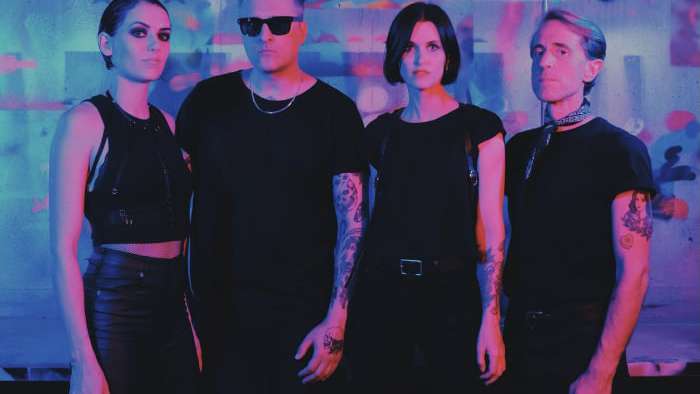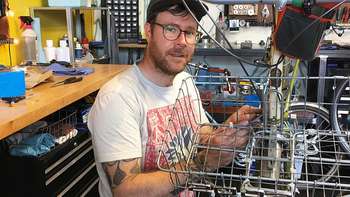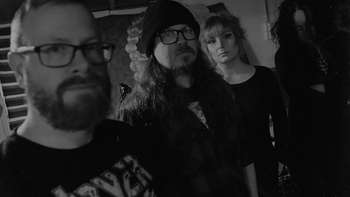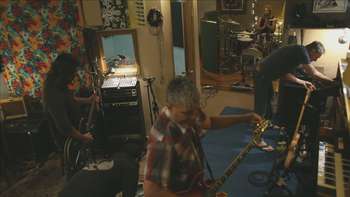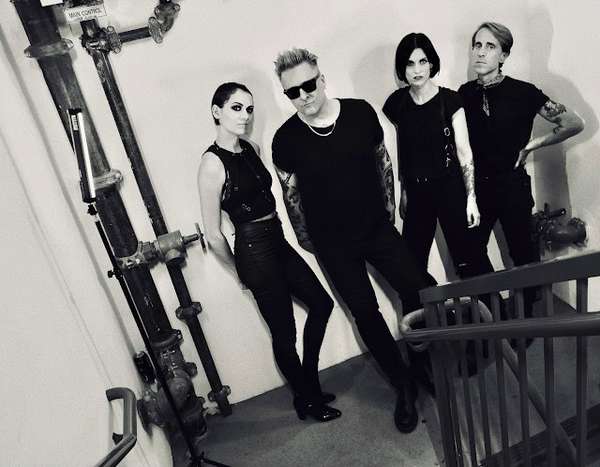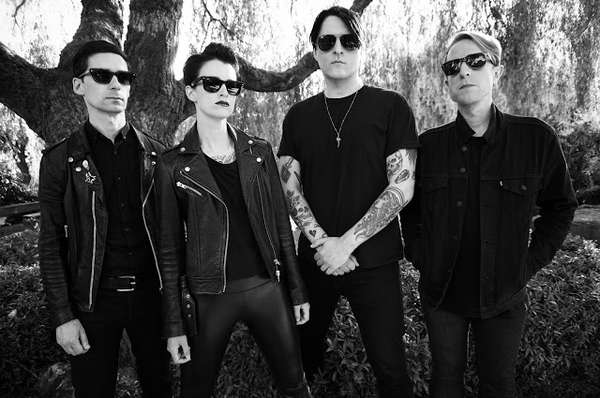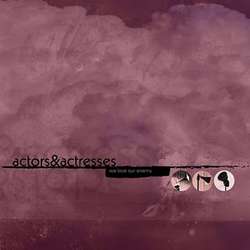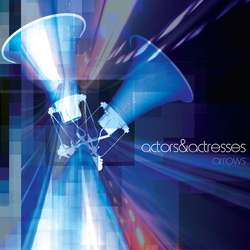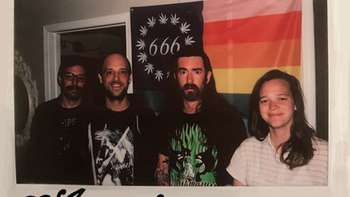There are a lot of misconceptions about the life of a musician. It’s not bright lights and fast living. Most musicians have day jobs – and not just to pay the bills. Jobs provide new challenges, personal fulfillment and, yes, some rent or gas money. And usually when somebody is writing a new record or scheduling a tour, they have to balance that with their job.
How an artist spends their time by day will influence the creative process at night. In Don’t Quit Your Day Job, Scene Point Blank looks at how musicians split their time, and how their careers influence their music or – sometimes – how their music provides escape.
In this edition, we chat with Jason Corbett of ACTORS, who runs a recording studio in Vancouver. The band released Acts of Worship earlier this year.
Scene Point Blank: First, can you share a bit about your job title and background? You currently own a studio. Did previous jobs lead you to this point?
Jason Corbett: I’m a music producer at my studio Jacknife Sound here in Vancouver. After years of balancing my music career with restaurant management I finally made the transition to full-time music about 6 years ago. Shortly after that my band ACTORS signed to Artoffact Records. My work now consists of producing, mixing, and mastering other artists, as well as my own music. I also dabble in music for film and TV -- most notably the hit Crave TV series Letterkenny.
Scene Point Blank: How does the timeline in the first question correlate with playing in bands? Were you in bands before working in this field, or after? Did one influence the other?
Jason Corbett: I’ve been playing in bands since I was 15 years old. It’s always been a big part of my life. It wasn’t until I began working with other artists though that it was possible to commit to doing music 100%. It was important for me to diversify and create several different revenue streams from music.
Scene Point Blank: I was told you've worked with various films, video game companies, snowboards, etc. Can you name any publicly -- either because it's impressive or for personal "this is cool" reasons?
Jason Corbett: As I mentioned above, Letterkenny TV series. I’ve also produced the original score for the movie Dead Shack with Peter Ricq from HUMANS and Gang Signs. Those were two gigs I really enjoyed.
Scene Point Blank: You record bands, but also TV and commercials. Was that the plan from the start, or more a business need to diversify? I know Vancouver is a popular area for film.
Jason Corbett: There’s been an ebb and flow to what I work on. Interesting gigs happen when you least expect them. The past year I’ve been more focused on ACTORS and my work with developing other artists.
Scene Point Blank: Is there such a thing as an "average day"? If so, what is it like?
Jason Corbett: I wake up and hit my social media. I think it’s important to stay connected to your friends and fans. Then most days I’m off to the studio with a strong coffee and work. Some days I'm there with artists tracking. Some days I’m mixing and mastering. Other days are for writing. No two days feel the same and it’s always fun. I like to keep the atmosphere as fun as possible.
Scene Point Blank: Has owning the studio ever led to awkward conversations where a friend's band or an opener or something begs for favors?
Jason Corbett: You would think so but the truth is that my friends have been very supportive and trusting. From the beginning I’ve been lucky to have good people around me.
Scene Point Blank: How do you find new clients: is it through "the scene" or networking or advertising (or all of those)? Do you tend to get cold calls, or mostly work with people you've already met?
Jason Corbett: I think my work with ACTORS brings me a lot of work. If there’s an artist I really want to work with I will reach out to throw my hat in the ring. It always helps to meet people first to see if it makes sense to work together.
Scene Point Blank: How has the pandemic affected the studio over the past two years?
Jason Corbett: It’s been good. Not being able to tour has meant that I have more time at the studio. Artists have been focused and that makes for wonderful productivity.
Scene Point Blank: Does the job influence how Actors operates -- meaning, do you have to tour at a certain time of year to fit schedules, or does it affect how you write, rehearse or record? (It seems obvious that there would be sonic inspiration all the time.)
Jason Corbett: It comes down to keeping a detailed schedule on the calendar. Plans can change at anytime so I try to stay flexible. I usually like to work on one project per day. That way it keeps me in the right creative frame of mind.
Scene Point Blank: I imagine you're constantly discovering new music through the job. Do you think it directly influences your songwriting?
Jason Corbett: I love discovering new music. I find inspiration in production and mixing techniques more so than in the actual songwriting.
Scene Point Blank: Are there any examples of this (influence) on the new record that you could point out?
Jason Corbett: The song "Death From Above" has a shuffling triplet feel that I picked up from listening to Junior Boys. It’s something I had never tried before. It's a nice rhythmic deviation on the album.
Scene Point Blank: What's the biggest challenge in running this business and being in a band at the same time?
Jason Corbett: Deciding where to spend more of my time and in what capacity. I love helping artists shape their vision but I also love making music for the fans of ACTORS.
Scene Point Blank: How often does your own music come up in the job -- either with co-workers, potential hires, or customers?
Jason Corbett: Many of my experiences with ACTORS are directly relatable to the musicians and music I work with. So it does come up but it’s important that the focus is on the artist and their music.
Scene Point Blank: Have you ever had to tell a film or TV crew, "Hey, my band is named Actors." Is that weird in any full-circle kind of way?
Jason Corbett: You would think that would have happened by now. Oddly it hasn’t.
Scene Point Blank: I would guess the equipment is the biggest financial investment in opening a studio, then you need some managerial skills. What advice would you give to others who might be interested in similar work, but doesn't know where to start?
Jason Corbett:
• Only do this work if you have a burning desire to do so.
• You must be passionate.
• We are all always learning.
• With the right attitude and work ethic you can do it!
Check out previous entries in the Don’t Quit Your Day Job series.
